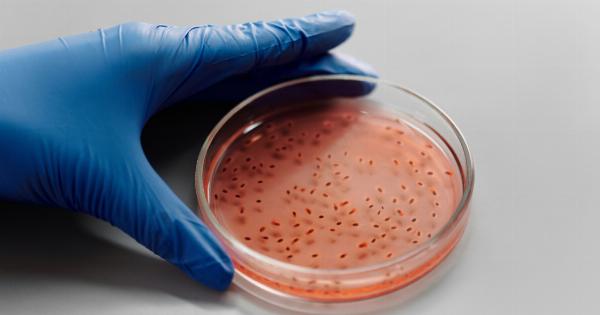Autism spectrum disorder (ASD) is a neurodevelopmental disorder characterized by social communication challenges, restricted and repetitive patterns of behavior, and sensory sensitivities.
Many individuals with autism may also experience gastrointestinal issues and food sensitivities. This has led to the exploration of dietary interventions, such as gluten-free and casein-free diets, to improve symptoms and overall well-being in individuals with autism.
The Connection Between Autism and Diet
While the exact relationship between diet and autism is not fully understood, there is growing interest in the potential role of dietary interventions in managing symptoms.
Some studies suggest that individuals with autism may have a higher prevalence of gastrointestinal abnormalities compared to the general population. This has led researchers to investigate the effects of specific dietary components on the behavior and overall functioning of individuals with autism.
Gluten-Free Diet and Autism
A gluten-free diet involves avoiding foods that contain gluten, a protein found in wheat, barley, rye, and some other grains.
Proponents of the gluten-free diet for autism argue that gluten can exacerbate gastrointestinal symptoms and potentially worsen behavioral symptoms in individuals with autism. However, the scientific evidence supporting the effectiveness of a gluten-free diet in treating autism symptoms is limited and inconsistent.
Research Findings on Gluten-Free Diet
Some studies have reported improvements in behavior, gastrointestinal symptoms, and overall functioning in individuals with autism following a gluten-free diet. However, other studies have shown no significant changes or mixed results.
The lack of consistency in findings suggests that a gluten-free diet may only benefit a subset of individuals with autism who have specific sensitivities or gastrointestinal issues.
Casein-Free Diet and Autism
A casein-free diet involves eliminating foods that contain casein, a protein found in milk and other dairy products.
Proponents of the casein-free diet argue that casein can have a negative impact on individuals with autism, including worsened gastrointestinal symptoms and behavioral issues. However, similar to the gluten-free diet, research on the effectiveness of a casein-free diet for autism is limited and has produced mixed results.
Research Findings on Casein-Free Diet
Some studies have reported improvements in behavior, communication skills, and gastrointestinal symptoms in individuals with autism following a casein-free diet. However, other studies have shown no significant changes or mixed results.
The inconclusive findings highlight the individual variability in response to dietary interventions and the need for personalized approaches in managing symptoms.
The Gut-Brain Connection
The gut-brain connection refers to the bidirectional communication pathways between the gastrointestinal system and the brain.
It has been suggested that disruptions in gut health and the gut microbiome may play a role in the development and manifestation of autism symptoms. Dietary interventions, such as the gluten-free and casein-free diets, are hypothesized to target this gut-brain connection and potentially improve symptoms in individuals with autism.
Limitations of Gluten-Free and Casein-Free Diets
While some individuals with autism may experience positive effects from following a gluten-free or casein-free diet, it is important to acknowledge the limitations of these dietary interventions.
Firstly, the elimination of gluten and casein can result in nutritional deficiencies if not carefully planned. Additionally, adhering to these diets can be challenging, especially in social settings or when eating outside the home. Lastly, the cost of gluten-free and casein-free products may be higher, making these diets less accessible for some individuals.
Conclusion
The effects of gluten-free and casein-free diets on individuals with autism are still subject to debate. While some studies suggest potential benefits in certain individuals, overall research findings are inconclusive and inconsistent.
It is essential to consider the individualized nature of autism and the variability of responses to dietary interventions. Consulting with healthcare professionals and conducting thorough evaluations before implementing dietary changes is crucial.
Future research should focus on identifying specific subgroups of individuals with autism who may respond positively to these dietary interventions.






























